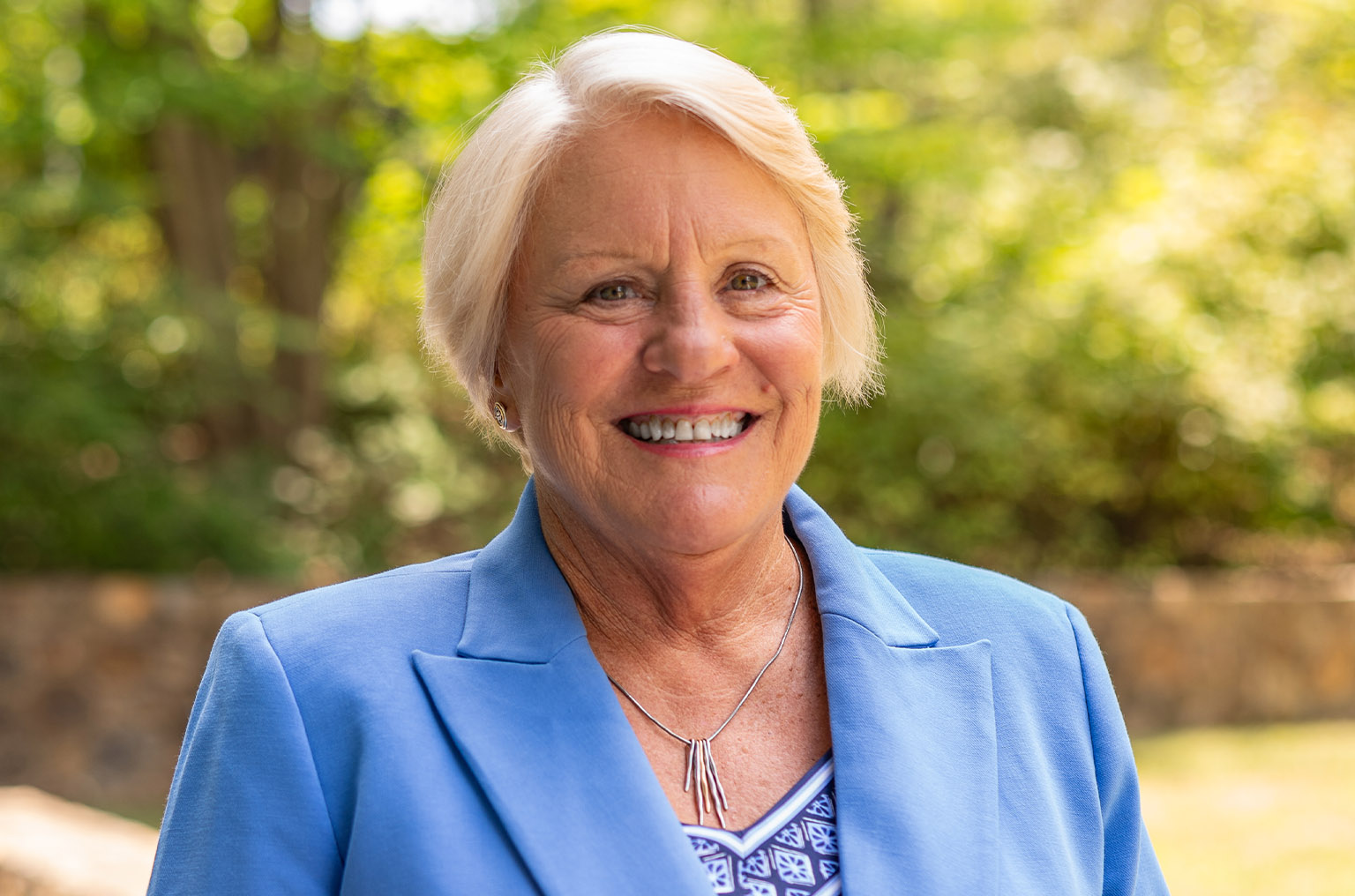READDI offers a global solution to a global challenge
The world needs U.S. innovation, says READDI board member Barbara Stephenson, UNC-Chapel Hill Vice Provost for Global Affairs and Chief Global Officer and former U.S. Ambassador to Panama.

By READDI, May 23, 2025 — READDI board of directors member Barbara Stephenson, former U.S. Ambassador to Panama, knows firsthand about the dangers of viral disease.
“I served in Panama twice and Curaçao once. I got dengue. People I love got dengue. People under my command got dengue. It was scary,” she says. “One of the Army officers I worked closely with had brain damage from the hemorrhaging.”
Stephenson is now vice provost for global affairs and chief global officer at the University of North Carolina at Chapel Hill, home of READDI’s virologist co-founders.
Stephenson has devoted her career to managing and promoting the benefits of international relations. After serving as Ambassador to Panama, she became the first woman to serve as deputy ambassador and acting ambassador at the U.S. Embassy in London, America’s largest embassy in Europe. As advisor to Secretary of State Condoleezza Rice and deputy coordinator for Iraq (2006-2008), Stephenson was recognized with the State Department’s Distinguished Honor Award. She served as American Consul General in Belfast, Northern Ireland, and in Curaçao, with other assignments in South Africa, the Netherlands and El Salvador.
READDI’s mission — to develop antiviral therapeutics for all people, when and where they need them — is global in its scope. READDI has built a network of international partners and recently entered a collaborative research partnership with the Korea National Institute of Infectious Diseases.
READDI spoke with Stephenson about her support for READDI, her experience with dengue and the importance of viewing pandemic preparedness through a global lens.
Why do you support the READDI mission?
This is just good for humanity. Our core mission at UNC-Chapel Hill is to improve society and help solve the grand challenges of our time. Pandemics are one of the grand challenges of our time, so it’s as core to the University’s mission as it can be.
My fellow READDI board member Senator [Richard] Burr talks about how the existence of READDI, an associated entity of UNC, elevates his storytelling about this great university. What READDI is doing is a moonshot.
Innovation is this country’s most important soft power. If READDI delivers on its work, that would be a shining example of soft power.”
Dengue has surged in the Americas and is predicted to become endemic in the U.S. within a decade. What should the uninitiated know about the severity of dengue?
The Aedes mosquito that carries dengue is a day-biting mosquito, so you cannot do what you do for malaria, which is to come inside at dusk and pull up your nets. Even going out for recess or walking to your car poses a risk. There is no treatment for dengue other than keeping your fluids up and trying to manage the fever, which can get really high. Other than fluids, Tylenol and cold wraps, there’s nothing you can do.
And it’s only gotten worse — a lot worse — in the Americas.
Dengue is in the flavivirus family. If READDI develops a broad-spectrum antiviral that’s effective across the entire family, we’ll have a treatment for dengue and other flaviviruses, including those that haven’t emerged yet.
Why should READDI view its mission through a global lens?
Viral outbreaks are a global problem. These diseases spread across borders, and the spread is amplified by the rate at which people travel. And then there’s the business challenge. Antivirals don’t fall into the classic pharma case, where a company develops a medicine it can sell to wealthy people in the U.S. and Europe, one they’ll be on for 20 years and that will bring in huge profits. It’s not that model at all. We need global funding partners — and international scientists — to fulfill this mission. READDI maintains a rock-solid commitment to make antivirals that you don’t need a hospital system to administer, antivirals that are shelf stable and don’t need refrigeration to deliver — small-molecule pills you can take with a drink of water. In short, READDI offers a global solution to a global challenge.
How do catastrophic viral outbreaks pose a national security risk for the United States?
When people get sick and die by the millions, as we experienced during COVID, that creates all kinds of instability. But I want to flip that question on its head and talk about how READDI’s mission, if we’re successful, could be a major win for U.S. national security.
National security involves both deterring threats and building ties and trust. If the military leans more towards deterring threats, diplomats like me are endlessly working on filling up the bank account of trust and reinforcing the ties that bind us to other countries. Showing up with life-saving medicine both reduces the threat of contagion and massively builds trust.
Joseph Nye, who coined the term “soft power” [a country’s ability to influence others through attraction and persuasion rather than coercion], wrote that it wasn’t as much America’s wealth or system of governance that people around the world admire. Innovation is this country’s most important soft power. We know from polling and other sources that when asked what they like most about America, folks around the world say it’s our dynamism, our innovation, our problem-solving abilities.
Coming up with life-saving drugs will reinforce that we are compassionate, innovative problem solvers. That will help us win back the hearts and minds of people. Imagine what it would mean if the U.S. Southern Command could help distribute shelf-stable dengue antivirals the next time there’s a huge dengue outbreak in Latin America. If READDI delivers on its work, that would be a shining example of soft power.
